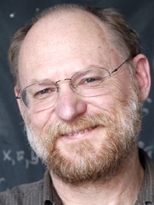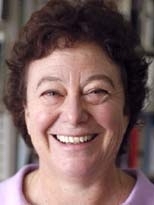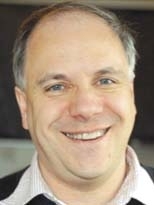Three faculty members were recognized for their outstanding teaching abilities last Friday when they were named MacVicar Faculty Fellows: Haynes Miller of mathematics, Ruth Perry of literature, and David Pesetsky of Linguistics and Philosophy.
The fellowships were established in 1992 to honor the life and contributions of Margaret MacVicar (S.B. 1964, Sc.D.), MIT's first dean for undergraduate education and founder of UROP (the Undergraduate Research Opportunities Program). The program gives an annual scholar's allowance to each Fellow to use for developing ways to enrich the undergraduate learning experience. Fellows serve 10-year terms.
The March 4 ceremony at the Faculty Club was followed by a talk on "What Should We Achieve in an MIT Four-Year Education?" by Dean of Science Robert Silbey and Professor Charles Stewart of political science, both of whom serve on the Task Force on the Undergraduate Educaitonal Commons.
Haynes R. Miller
Mathematics
- B.A. from Harvard University in 1970; Ph.D. from Princeton University in 1974.
- Professor, 1986 to present.
Colleague comments:
- "I see his office full, every day, of students who come to him for help. He has an open door in the best tradition of Margaret MacVicar."
- "[He is] currently the de facto department leader in educational innovation."
Student comments:
- "Not only did Professor Miller want us to appreciate math, but he sincerely wanted us to be able to understand it, as opposed to caring about whether we could simply solve equations."
- "He would ask us hard questions and not accept the simple 'I don't know.' Because he wasn't afraid to do this, I, in turn, wasn't afraid to think and figure out answers on my own."
- "Work didn't feel like work anymore; it felt like joy."
- "Professor Miller leaves students expecting more, not only of their other professors, but also of themselves."
Ruth Perry
Literature
- B.A. cum laude from Cornell University in 1963; M.A. in physiological psychology from Cornell in 1965; M.A. in literature in 1970 and Ph.D. in literature in 1974, both from the University of California at Santa Cruz.
- Instructor, 1972-73; assistant professor, 1973-80; associate professor, 1980-82; director of Women's Studies Program and senior lecturer in literature and women's studies, 1982-87; director, WSP, 1991-93 and 1996-98; professor, 1987-present.
Colleague comments:
- "Her enthusiasm for bringing new subject material to students is contagious, and I count myself fortunate to have had her for a colleague and informal mentor since my arrival here as a junior faculty member."
- "She is a superb discussion leader as well as an insistent critic and successful improver of student writing. She is a peerless mentor."
Student comments:
- "Ruth is the professor you hope you have at least once in your life."
- "Professor Perry's enthusiasm for her subject is inspiring and contagious; I loved every minute I spent in her classes."
- "She listens with benevolence, with a mind open to the possibility of gaining new perspectives from her students."
David Pesetsky
Linguistics and Philosophy
- B.A. summa cum laude from Yale University in 1977; Ph.D. in 1983 from MIT.
- Associate professor, 1988-1994; professor, 1994-99; Ferrari P. Ward Professor of Modern Languages and Linguistics, 1999-present.
Colleague comments:
- "David can make the most complicated material easy to understand. I love listening to him and watching him teach, even if it is material that I have taught many times myself."
- "Without exaggeration, he is the best teacher of linguistics I have encountered in my 25 years of teaching."
Student comments:
- "He manages to teach not just the conclusions, but also the sort of thought processes and evidence necessary to reach those conclusions."
- "David was one of the most enthusiastic teachers I had as an undergraduate, and his energetic teaching and his ability to radiate a tremendous sense of excitement at the discoveries of linguistics theory had significant effect on my interest."
- "Most instructors are good at teaching either introductory-level courses or advanced classes, but not both. Professor Pesetsky is one of the rare people who are equally comfortable in both environments."
A version of this article appeared in MIT Tech Talk on March 9, 2005 (download PDF).








